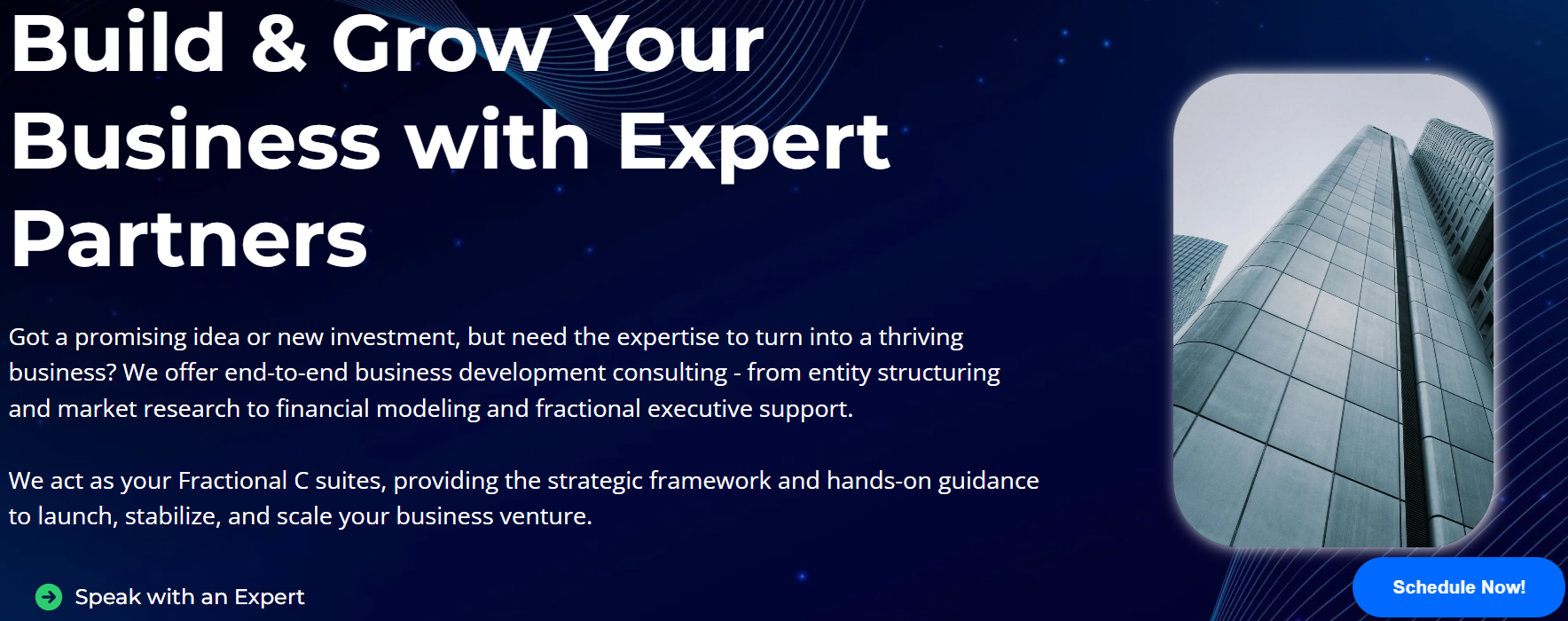How Strategic Planning Services Can Elevate Your Startup

Starting a business can feel exciting and daunting at the same time. While you may picture fast growth and big wins, the reality is far from it. In fact, up to 90% of startups fail, and only 10% survive their first year.
These numbers aren't just statistics. They represent real founders who poured their hearts into their ideas but failed to execute them properly. A great concept isn't enough to ensure your startup's survivability.
From finding the right market to getting funding, you're probably juggling between a dozen priorities. In addition to that, you need to make tough decisions. Without a solid, actionable plan, you'll waste energy focusing on the wrong things instead of building your business.
This is where the strategic planning process becomes important. It is a roadmap that helps you navigate through all of the chaos. With a strategic plan, you can turn your big ideas into specific actions and see problems before they even occur. Most importantly, it shows investors you know what you're doing.
At Momentum Growth Partners, we understand that the strategic planning process isn't just an internal exercise. It's a roadmap for startups to get the funding they need to grow.
In this blog, our business consultant expert will go over the following:
- The importance of strategic planning for startups
- Common startup problems strategic planning services can solve
- How to develop an actionable strategic plan
- Why a strategic plan is crucial for fundraising
Let's get started!
Why the Strategic Planning Process Is Crucial for Startup Success

Many founders fail to focus on strategic planning, often disregarding it as corporate fluff. Believing that it could waste time, most business owners spend time building their product. This is the wrong approach that is known to kill startups.
You need to set the right direction for your startup from day one. As a business owner, you need to be agile and have a strategic plan to resort to when things go south. Without a strategy, you're just reacting to whatever happens next.
There are many problems that could arise if you don't have a proper strategic plan. They may include the following:
High Burn Rate
Did you know that a shocking 38% of startups fail because they run out of money? Most founders end up wasting resources on the wrong priorities while chasing too many opportunities at once. It's important to remember that every dollar you spend without a clear reason brings you closer to shutting down.
Missed Opportunities
Markets move fast, and new competitors could appear overnight. Are you prepared to tackle this quickly evolving business landscape?
Without a strategic view, you can't spot industry trends until it's too late. You need to see what's coming and not just react to what's already here.
Stunted Growth
According to the Bureau of Labor Statistics, 20% of businesses fail within two years, and 45% don't make it to year five. Without the right direction, your startup's "inflated" growth could create new operational and financial challenges.
Think of the strategic planning process as a foundation for your business instead of an overhead. It helps transform ideas into a plan that works. When your entire organization aligns around a clear vision, you develop the focus needed to achieve sustainable growth.
5 Common Startup Problems Strategic Planning Consulting Services Can Solve

If you're facing operational and financial challenges while running your startup, you're not alone. Here's how strategic planning services fix the most common issues that early ventures experience:
1. No Direction
As a founder, you may have a great idea but feel overwhelmed when it comes to execution. Every decision feels random. Your leadership team pulls in different directions. So, what should you do?
Experienced strategic planning consultants know that the best way to start a business is to set the right mission, vision, and values. These "fancy words" will act as your decision-making guide.
2. Lack of Market Research
CB Insights tells us that 35% of startups fail due to a lack of market research. Consumers won't buy your product if there is no demand for it. It's crucial to put your ideas on the back burner if the market reality is different.
With an effective strategic plan, you know what to do even before launching a product. The planning process will walk you through the different stages of product development, which include:
- Researching your competition
- Understanding your clients
- Testing your assumptions
Focus on market research first and everything else later, as it can help generate and save your business a lot of money down the road.
3. Poor Resource Allocation
Running a startup is all about bootstrapping. The limited amount of money, time, and people you have can make it challenging to carry out efficient operations. During all of this chaos, you might find yourself overwhelmed with a lot of things to do. This can push back key initiatives.
With proper strategic planning, you'll focus on what matters most. A solid plan can help you prioritize high-impact activities and learn to say no to distractions. It'll turn your weaknesses into opportunities. This strategic approach ensures every action plan supports your organization's goals.
4. Funding Problems
Venture capital firms sit through over 1,000 pitches per year, which means that a good idea is not enough to get funding. Investors want proof that you can execute and achieve measurable results. Do you have what it takes to deliver?
This is another area where strategic planning can support your startup. When you present data-backed projections, clear milestones, and realistic paths to profit, investors will see you've done your homework while demonstrating serious business acumen. This could be enough to sway venture capitalists into writing a cheque.
5. Fear of Failing
A 2024 GEM Adult Population Survey (APS) revealed that 49% of the respondents would not start a business due to fear that it might fail. This figure illustrates that humans like to stay in their comfort zone instead of taking risks.
Over the past few years, many startups have failed because their founders were afraid to keep pace with market changes. Strategic planning reduces the fear of failure by making your business more adaptable and resilient.
With an effective plan, you'll be able to identify changes or trends that could affect your startup, enabling you to make the right decisions and pivot quickly. This strategic approach enables founders to maintain a competitive advantage while capitalizing on emerging market opportunities.
Develop a Strategic Action Plan in 5 Simple Steps

The strategic planning process isn't a document you write once and forget. You need to constantly resort to it, assess your current situation, and make the necessary changes to ensure that your startup is on the right track.
Need help creating a strategic action plan? Here are the five key steps:
Step 1: Figure Out Where You Are
Start with an honest look at your current situation. Assess your team's strengths, evaluate your technology, and determine your market position. What makes you different from competitors? What problems do you solve that others don't?
Most founders are too close to their business to see clearly. Getting an outside perspective helps identify blind spots, areas for improvement, and missed opportunities. This is where strategic planning consultants bring tremendous benefits. Through a deep environmental scan, objective analysis, and proven facilitation methods, an expert can push you in the right direction.
Step 2: Define Your Vision and Strategic Intent
Create a clear picture of success. Think about your impact, market position, and company culture. Set SMART goals that your leadership team can rally around.
When everyone understands the destination, they work better together. Your executive team and senior management must be on the same page. This shared vision creates the foundation for effective strategy execution.
Step 3: Plan How You'll Get There with a Strategic Approach
Decide what initiatives to pursue and how to use your limited resources. Will you focus on gaining more clients or building new products? You can't do everything, so make tough choices and stick to them.
During planning sessions, engage your team in answering strategic questions about resource allocation and market positioning. Think about how different business units will contribute to your startup's success. When everyone is onboard, it's easy to cover all of the important aspects of running a startup.
Step 4: Turn Plans into Action
Start taking baby steps by breaking big goals into smaller tasks, and get to work. Assign clear responsibilities and deadlines to your team so they know exactly what to do and when to do it.
During this phase, it's all about strategy execution, which makes communication super important. You must convey to your employees that their work contributes to achieving the startup's mission, vision, and goals.
Step 5: Track Progress and Adjust
Once you've put your strategic plan into action, it's time to track and adjust. A great way to do that is to monitor five to seven key metrics that are critical to your startup. Check these regularly and address any issues that arise immediately.
We highly recommend facilitating review meetings regularly. It's a fantastic way to maintain momentum within the team and address any ongoing challenges.
Getting expert help from strategic consulting services speeds up this process and keeps you accountable to your goals.
Can a Strategic Plan Help Raise Funds for Your Startup?

A great pitch deck will get you meetings, but an effective strategic plan will bring in more funds. Investors see presentations day in and day out, which can get really boring. They love leaders with enthusiasm, big ideas, realistic goals, and the ability to execute plans.
If you have a comprehensive strategic plan, investors are more likely to trust you because you've proven that you can:
Handle the Challenges
Investors aren't just buying your current idea. They're betting on your ability to navigate what's coming.
Your strategic plan proves you've thought through market changes, competitor moves, and potential problems. It shows that you're not just reacting to events but are preparing for them.
Make Money
An investor would want to know exactly how you'll make money and when. A strategic plan outlines the route to market, scaling strategy, and realistic timeline. This addresses an investor's biggest concerns about execution and market potential.
Reduce Investors' Risk
75% of venture-backed startups fail to return cash to their investors, and the investors are aware of this. With a strategic plan, you can demonstrate that you've identified potential problems and planned effective solutions. You're acknowledging risks instead of ignoring them, which makes you a safer bet.
Ask for the Right Valuation
When you ask for money, you're selling future value. Your strategic plan backs up your numbers with logic and data, showing the growth path and milestones that support your projections.
Manage Your Team Well
Investors fund teams, not just ideas. A unified strategic plan shows that everyone is on the same page. Board members want to see that leadership can work cohesively toward shared objectives.
Strategic planning transforms your startup from a hopeful gamble into a calculated investment opportunity. This is particularly important for small businesses competing against larger, more established organizations.
Get Strategic Planning Services for Your Startup with Momentum Growth Partners!

From finding direction to validating your market, allocating resources efficiently, and getting investors to trust you, a strategic plan solves most of your biggest problems. The strategic planning process turns your startup's potential into real results.
Momentum Growth Partners helps startups like yours build winning strategic plans. We've guided companies from early ideas to thriving businesses. Our business consulting experts offer objective insights through proven methods and deep startup experience to help your company reach the next level.
Ready to stop guessing and start growing? Call us at +1 (888) 682-8004 to schedule a consultation with an experienced strategic planning consultant and learn how we can help elevate your business!




